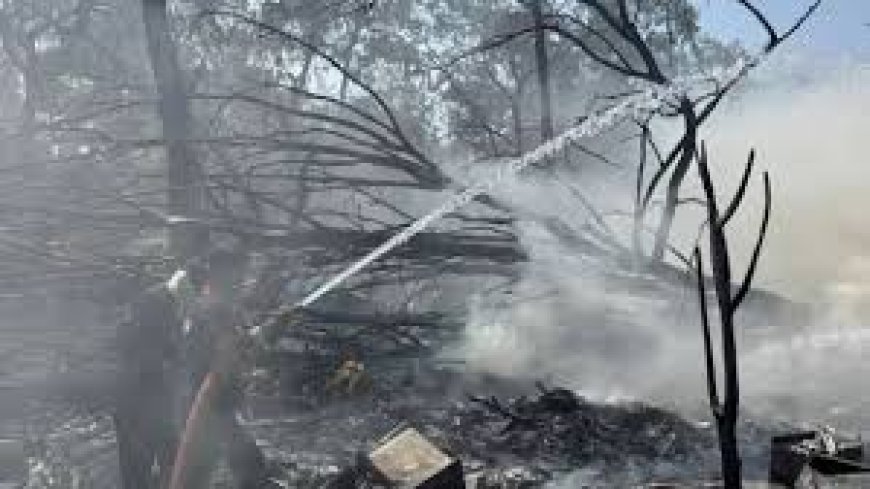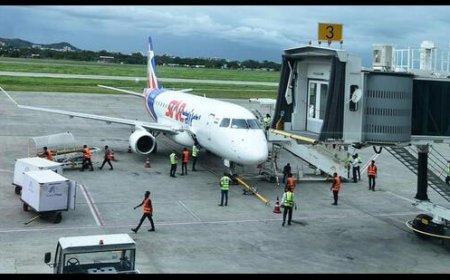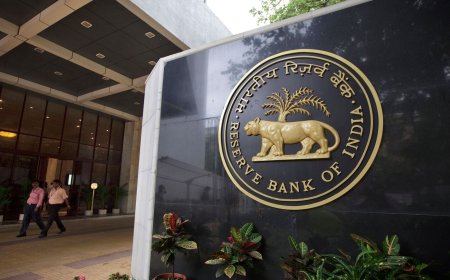Air India crash: How UK PM Starmer, Nawaz Sharif and other global leaders reacted.
UK PM Keir Starmer, Nawaz Sharif, and world leaders mourn Air India crash victims. Global aviation safety, market impact, and investigation insights.

A Tragedy That Shook the World
The aviation world was left stunned this week as an Air India passenger aircraft tragically crashed en route from Delhi to London, claiming the lives of 212 people, including 14 crew members. The Boeing 787 Dreamliner went down near the outskirts of Istanbul, Turkey, due to what preliminary investigations suggest was a catastrophic mid-air systems failure. As rescue operations and investigations continue, leaders from across the globe have offered condolences, solidarity, and assistance in navigating the aftermath.
Global Leaders Extend Condolences
The crash has elicited widespread global response. UK Prime Minister Keir Starmer was among the first to issue a formal statement, expressing “deep sorrow” at the loss of life. “Our thoughts are with the families of the victims and the people of India during this incredibly difficult time,” Starmer stated from Downing Street. He added that British authorities are coordinating with their Indian and Turkish counterparts to assist in victim identification and repatriation.
Former Pakistan Prime Minister Nawaz Sharif also issued a heartfelt message, calling the incident a “shared tragedy that transcends borders.” “We stand with the people of India in mourning and offer any support necessary in this time of grief,” he said in a televised message from Lahore.
U.S. President Joe Biden, French President Emmanuel Macron, and leaders from Australia, Japan, and the Gulf nations similarly conveyed condolences. UN Secretary-General António Guterres described the crash as “a grim reminder of the fragility of life and the importance of international aviation safety standards.”
India Declares National Mourning
Prime Minister Narendra Modi declared a one-day national mourning, with flags flown at half-mast and government functions postponed. “We have lost not just citizens, but families, dreams, and futures,” Modi said in an address to the nation. The Directorate General of Civil Aviation (DGCA) has grounded all Dreamliner aircraft operated by Air India pending technical inspections.
Market Reaction and Airline Stock Impact
The crash sent immediate shockwaves through the stock market, especially in the aviation and travel sectors. Shares of Air India’s parent company, Tata Group, opened 3.2% lower on the BSE in early trade following the incident. Investor sentiment remained cautious as uncertainty looms over regulatory repercussions and potential litigations.
Aviation analyst Rishi Mehta commented, “While the crash appears to be a rare mechanical failure, it reignites scrutiny over fleet maintenance and pilot training protocols. Markets are sensitive to these events, especially when major flag carriers are involved.”
Tata Sons issued a statement reaffirming their commitment to full cooperation with investigation authorities and providing all possible support to victims’ families. “This is a moment of deep sorrow for us. We are mobilizing resources globally to ensure every next of kin is contacted and supported.”
Global Aviation Safety in the Spotlight
The incident has reignited calls for enhanced global aviation safety measures. The International Civil Aviation Organization (ICAO) announced an emergency meeting to evaluate the preliminary findings and assess manufacturer accountability.
“It is critical that we treat this not just as an accident but a wake-up call,” said Dr. Elena Bosque, an aviation safety expert based in Geneva. “Airlines and regulatory bodies must improve predictive maintenance analytics and global oversight protocols.”
The European Aviation Safety Agency (EASA) has issued a notice to airmen (NOTAM) calling for increased checks on Boeing 787 aircraft, particularly those delivered before 2020.
Human Toll and the Road Ahead
Among the passengers were business leaders, students, and tourists — representing 13 nationalities. The Ministry of External Affairs confirmed that 152 Indian nationals were onboard, along with citizens from the UK, Canada, Australia, and the UAE.
Relatives of the victims have started arriving in Istanbul, with Indian embassy officials and consulate staff assisting in identification procedures. Turkish authorities have deployed forensic teams and psychological support services to aid grieving families.
The black box has been recovered and sent for analysis. A preliminary report is expected within 30 days, although full findings may take several months.
Investor Outlook
From an investor’s perspective, the tragedy brings into focus the importance of risk mitigation in the aviation and travel sectors. “Aviation stocks might see a short-term correction, especially if the findings point to manufacturer defects,” noted Abha Chatterjee, a senior equity strategist at Motilal Oswal. “However, long-term fundamentals remain intact provided this is an isolated incident and corrective measures are swift.”
Bond markets showed minimal impact, indicating limited systemic financial risk. However, reinsurance costs for major airlines could see temporary upward adjustments.
The Air India crash is more than a national tragedy — it’s a global moment of mourning and reflection. As leaders rally in solidarity, investigations aim to prevent future such incidents, while markets brace for regulatory and economic implications. For now, the world stands united in grief, honoring the lives lost in a catastrophe that no one will forget.
What's Your Reaction?
 Like
0
Like
0
 Dislike
0
Dislike
0
 Love
0
Love
0
 Funny
0
Funny
0
 Angry
0
Angry
0
 Sad
0
Sad
0
 Wow
0
Wow
0













































































